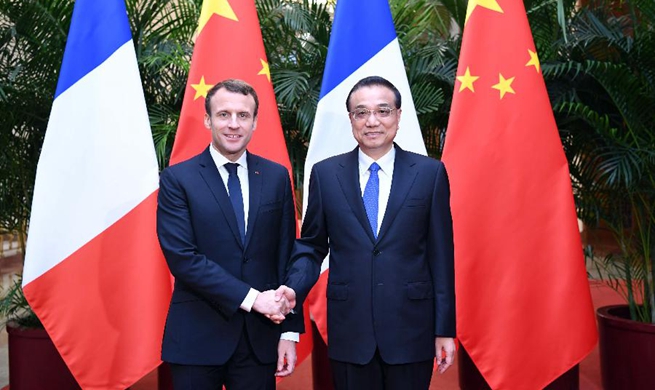MANILA, Jan. 10 (Xinhua) -- The Philippines' manufacturing output further dipped in November 2017 partly due to the lower production of tobacco and food, the government said on Wednesday.
Citing the Monthly Integrated Survey of Selected Industries of the Philippine Statistics Authority (PSA), the National Economic and Development Authority (NEDA) said the manufacturing sector's volume of production index (VoPI) contracted 8.1 percent in November 2017.
It said the value of production index (VaPI) also contracted 9.3 percent in November 2017, leaving a three-month moving average of VoPI and VaPI of 2.5 percent and 1.5 percent, respectively.
The NEDA said the decrease in production volume in November can be partly attributed to the lower production of tobacco following the implementation of the first package of the Tax Reform for Acceleration and Inclusion (TRAIN), which imposes an additional excise tax on tobacco products beginning this January.
Production volume and value of manufactured food also declined in November, due to decreases in the production value of milk and dairy products, milled and refined sugar, bakery products, and processed fruits and vegetables, NEDA said.
Philippine Socioeconomic Planning Secretary Ernesto Pernia expressed optimism that manufacturing output will recover this year following three consecutive months of decline since September 2017.
"Despite the recent performance of the manufacturing sector, we remain optimistic given strong domestic and external demand. There are also considerable public and private investments in the country," Pernia said.
He said that domestic demand may be higher in 2018 due to the country's infrastructure development through the Build, Build, Build program and a higher take-home pay of Filipinos thanks to the tax reform law.
Pernia said the key to the recovery of manufacturing is the earnest efforts of the government to reduce unnecessary regulatory burden.
He added that manufacturing can benefit from the country's Build, Build, Build program or "good quality" credit rating, as this reflects the country's strong and consistent macroeconomic performance, and high investor confidence. The credit rating upgrade may also introduce a lower cost of financing projects.

















